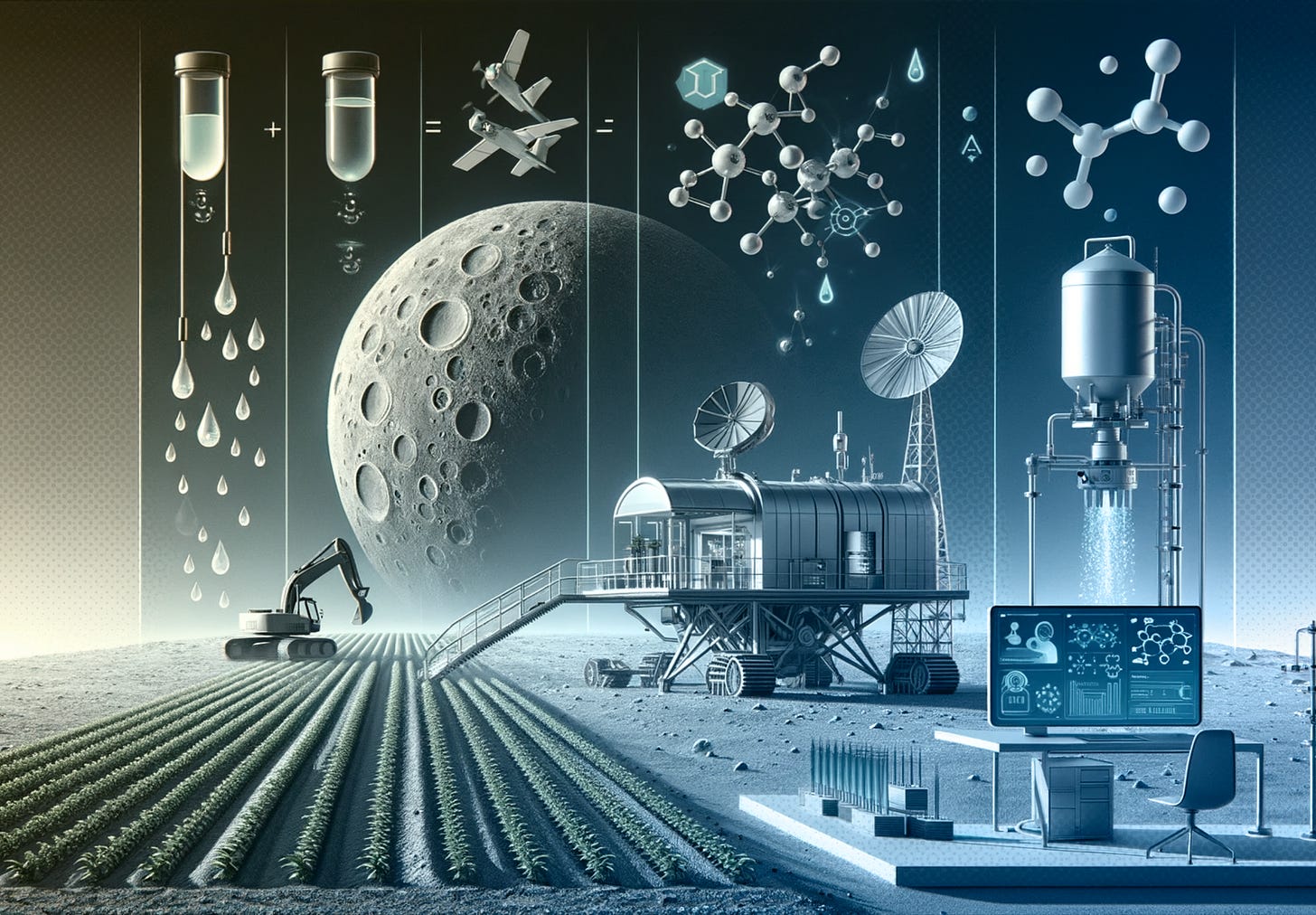Mining Helium-3 on the Moon; U.S. Boosts Green Hydrogen Investments; MIT spinoff could halve pesticide use; Quantum & AI accelerating Chemical and Materials R&D
An insider’s update on Deep Tech: Your dose of tech innovations, startups, exponential industries, policies, and market moves to stay ahead and capitalize on it.
Welcome to The Scenarionist’s Sunday Brief, where we discuss 5 crucial facts from the week shaping the Global Deep Tech landscape at the intersection of technology, policy, and markets.
Get practical insights from cutting-edge tech innovations to the most significant startups and capital moves to stay ahead, stay competitive, and seize new market opportunities.
In today's briefing, we delve into the forefront of technological innovation across multiple industries, from space exploration and sustainable energy to advanced agricultural practices and quantum computing. We highlight significant initiatives and breakthroughs, including a pioneering effort to mine helium-3 on the moon, a substantial investment by the U.S. Department of Energy in green hydrogen production, revolutionary agricultural technologies aiming to halve pesticide use, and the integration of quantum computing and AI in accelerating chemical and materials R&D.
📣 Sponsor
to actively support open-source education in scientific entrepreneurship and gain visibility among founders, VCs, and experts in the Deep Tech industry. ➡️ Reach out to us at info@thescenarionist.orgMining Helium-3 on the Moon. Moon mining shouldn't be any more stuff of sci-fi dreams...

In the age of space exploration, Seattle-based startup Interlune steps out of stealth mode, unveiling ambitious plans to mine helium-3 from the moon's soil using advanced robotic technology.
Led by industry veterans, including Rob Meyerson, former president of Jeff Bezos’ space venture, Blue Origin, the company aims to kickstart a new era of natural resources harvested from the moon for applications ranging from quantum computing to fusion power.
Backed by a seed funding round of $18 million, led by Alexis Ohanian’s venture firm Seven Seven Six, Interlune plans to launch an initial prospecting mission by 2026, with commercial operations envisioned for the 2030s.
"For the first time in history, harvesting natural resources from the moon is technologically and economically feasible" Meyerson states, highlighting the potential to revolutionize not just the space industry but also critical sectors on Earth.
Interlune’s innovative robotic harvester aims to exploit helium-3, a stable and rare isotope on Earth but more abundant on the moon's surface due to solar wind accumulations. This valuable resource, which saw its price soar to $2,750 per liter in 2020, promises to unlock significant advancements in nuclear fusion, offering a potential fuel for commercial fusion reactors.
Interlune’s extraction technology stands out for



